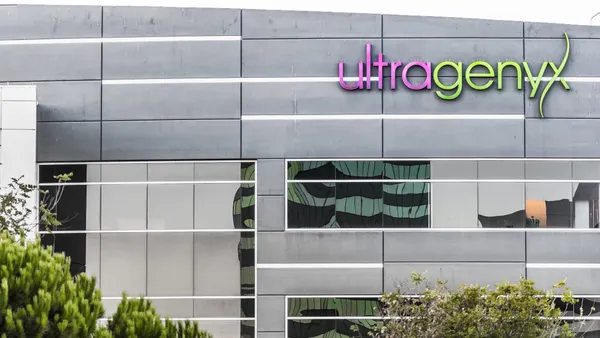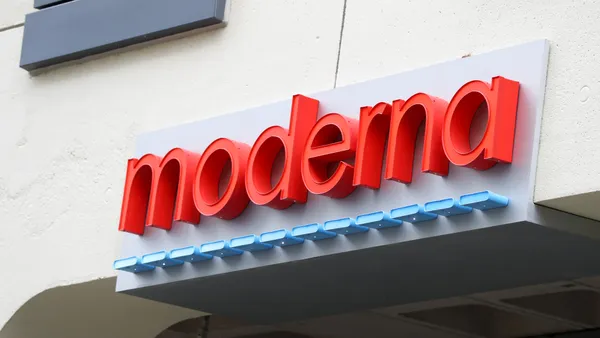Dive Brief:
- Kymera Therapeutics and Gilead Sciences will develop oral molecular glue degraders under a deal announced Wednesday, which could hand the former as much as $85 million in upfront and option exercise fees.
- The biotech also said Wednesday that existing partner Sanofi will advance a different protein degrader candidate called KT-485 into clinical testing by the end of the year. Under Kymera’s agreement with Sanofi, the biotech recently received a $20 million payment related to preclinical research for that drug.
- Sanofi chose not to bring forward KT-474, which it spent years working on with Kymera and had advanced into mid-stage testing for two inflammatory diseases.
Dive Insight:
Kymera was one of the first biotechnology companies built on the promise of targeted protein degradation technology, a field of medicine that takes advantage of a cell’s internal machinery to get rid of unwanted or problematic proteins.
Its most advanced program had been KT-474, the Sanofi-partnered candidate that began Phase 2 testing for atopic dermatitis and hidradenitis suppurativa.
Now, the French pharmaceutical company is turning its attention to KT-485, an oral degrader that targets a protein called IRAK4 that helps regulate innate immunity. Kymera CEO Nello Mainolfi said in a statement that KT-485 “demonstrated an improved target product profile” compared to its previous program, which was also aimed at IRAK4.
Kymera could receive as much as $975 million in milestone payments as part of its deal with Sanofi, some of which could pay out next year if the two begin clinical testing of KT-485 then.
Its work with Sanofi, as well as success obtaining promising data for its Dupixent competitor KT-621, may have set the stage for Gilead’s interest.
Gilead and Kymera will develop a molecular glue degrader for breast cancer and other solid tumors. The two companies are targeting CDK2, an enzyme pharma competitor Roche is also looking at as a cancer drug target. Protein degrader specialist Monte Rosa Therapeutics is exploring CDK2 as well.
“We see the announcement as validation for [Kymera’s] development capabilities and the potential for degraders to offer a better targeting approach than small molecule inhibitors,” Faisal Khurshid, an analyst at Leerink Partners, wrote in a client note.
Kymera shares dipped slightly on the news, dropping as much as 5% Wednesday. Its stock price had increased substantially at the end of last month, following Phase 1 data from the company’s trial of KT-621.















